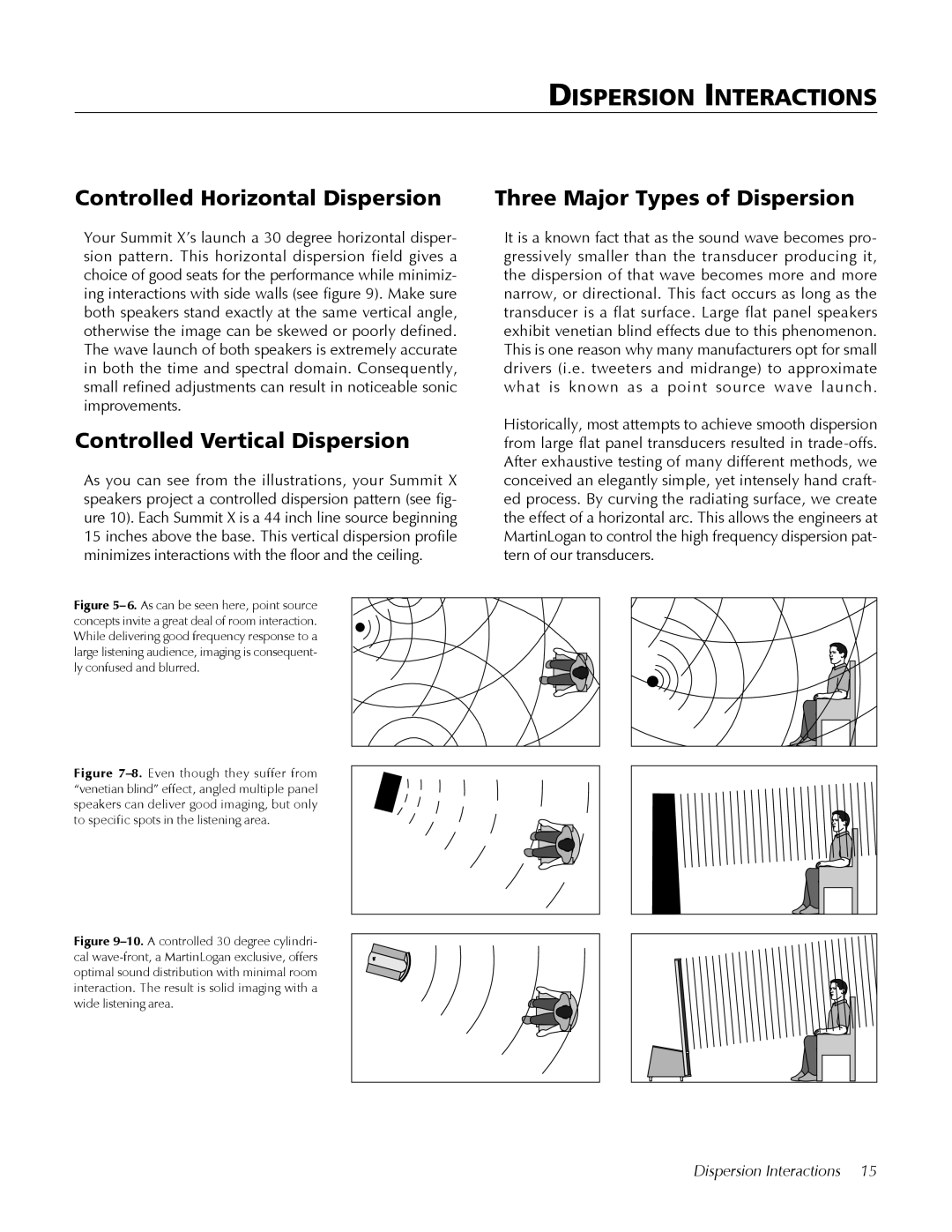
Dispersion Interactions
Controlled Horizontal Dispersion
Your Summit X’s launch a 30 degree horizontal disper- sion pattern. This horizontal dispersion field gives a choice of good seats for the performance while minimiz- ing interactions with side walls (see figure 9). Make sure both speakers stand exactly at the same vertical angle, otherwise the image can be skewed or poorly defined. The wave launch of both speakers is extremely accurate in both the time and spectral domain. Consequently, small refined adjustments can result in noticeable sonic improvements.
Controlled Vertical Dispersion
As you can see from the illustrations, your Summit X speakers project a controlled dispersion pattern (see fig- ure 10). Each Summit X is a 44 inch line source beginning 15 inches above the base. This vertical dispersion profile minimizes interactions with the floor and the ceiling.
Figure 5–6.. As can be seen here, point source concepts invite a great deal of room interaction. While delivering good frequency response to a large listening audience, imaging is consequent- ly confused and blurred.
Figure 7–8.. Even though they suffer from “venetian blind” effect, angled multiple panel speakers can deliver good imaging, but only to specific spots in the listening area.
Figure 9–10.. A controlled 30 degree cylindri- cal wave-front, a MartinLogan exclusive, offers optimal sound distribution with minimal room interaction. The result is solid imaging with a wide listening area.
Three Major Types of Dispersion
It is a known fact that as the sound wave becomes pro- gressively smaller than the transducer producing it, the dispersion of that wave becomes more and more narrow, or directional. This fact occurs as long as the transducer is a flat surface. Large flat panel speakers exhibit venetian blind effects due to this phenomenon. This is one reason why many manufacturers opt for small drivers (i.e. tweeters and midrange) to approximate what is known as a point source wave launch.
Historically, most attempts to achieve smooth dispersion from large flat panel transducers resulted in
